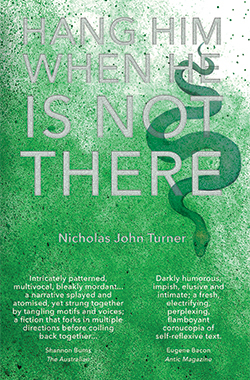What do you think?
Rate this book


164 pages, Paperback
First published January 31, 2016
The young nurse [who many years later - perhaps - becomes a leading literary author, only denied the Man Booker and Miles Franklin Prizes by her insistence on anonymity] likened her own personal experience of reading to the shuffling of a caterpillar, which first drags its back half up, then extends its front to advance. It had something to do with the burden of her mind, her cautiousness, and her desperation to comprehend everything around her before moving on. At the end of every page she .. glanced over to confirm the page number. Then she checked the number on the next page, to ensure that the one correctly followed the other
Even the most highly channeled mind is a relentless assembler of information, a stubborn maker of stories.
I was indeed a proof reader. But even within that specialisation I was a specialist, capable of living for hours, days, weeks or even months among the fine structural details of a text without once concerning myself with its ultimate relevance or value or meaning.
Ursula did not read in the conventional fashion of left to right, top to bottom. Instead, she merely opened a page and scanned, seemingly randomly, her eyes following no obvious pattern ........... She is looking for proof of her own life there, as a bee looks for flowers that resemble itself. Which is to say, not by visiting each flower on a single plant in a meticulous and ordered and exhaustive manner.
Given that writing and reading are the reflection of each other (like throwing and catching, speaking and listening....) the phrase “I am reading someone” ... must imply a kind of uncreation (anticreation) or else negation (obliteration?)
Originally published in Australia in January 2016, and largely overlooked at the time, this debut seems – at first glance – to be made up of free-standing short stories. On reading, and re-reading, however, the links and reflections begin to become apparent. Those gathering certainties are then complicated again . . . . This is the novel as hall of mirrors, and it rewards you for following it to the end.“I can look for him when he is not there, but not hang him when he is not there”